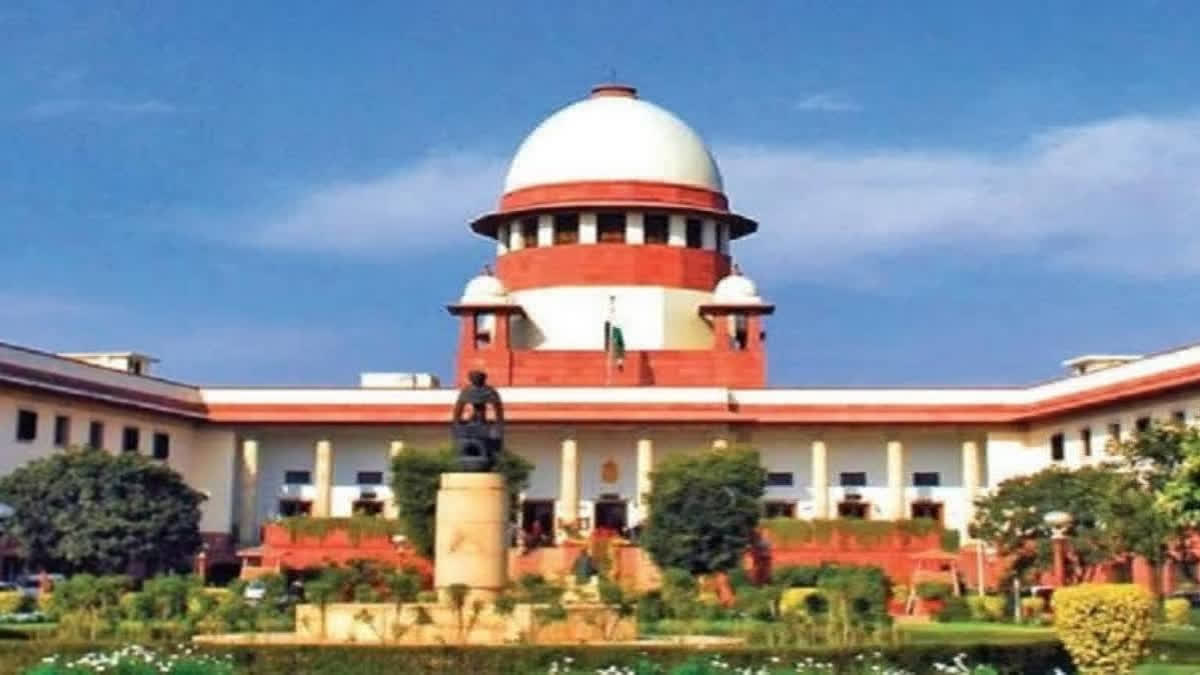New Delhi: The Supreme Court on Thursday upholding the constitutional validity of Section 6A of the Citizenship Act, 1955, inserted after the signing of the Assam accord on August 15, 1985, said that Section 6A falls within the bounds of the Constitution and does not contravene the foundational principles of fraternity. A constitution bench led by Chief Justice DY Chandrachud and justices Surya Kant, MM Sundresh, JB Pardiwala and Manoj Misra, by a majority view of 4:1, rejected a challenge to the legal provision.
Justice Kant, in a separate view on behalf of himself, Justice Sundresh and Justice Misra, said, “We hold that Section 6A falls within the bounds of the Constitution and does not contravene the foundational principles of fraternity, nor does it infringe upon Articles 6 and 7, Article 9, Article 14, Article 21, Article 29, Article 326, or Article 355 of the Constitution of India”.
Justice Kant, in a 185-page opinion, said, “It is held that Section 6A of the Citizenship Act, 1955, falls within the bounds of the Constitution and is a valid piece of legislation”.
Justice Kant said the term ‘fraternity’ embodies a sense of collective brotherhood amongst all Indians and it serves as a critical element for national unity and social cohesion. He said the ideals of equality, liberty and fraternity could not be divorced from each other, as equality and liberty without fraternity would result in the supremacy of the few over the many. “It might be antithetical to the essence of fraternity to deploy this inclusive constitutional value in a way which deliberately excludes large swathes of the population, who have been duly conferred citizenship through the procedure established by law, from the protection of constitutional rights”, said Justice Kant.
Citing a judgment, he said: “Our understanding of fraternity, as also applied by this Court in Indian Medical Association vs Union of India (supra), is that it encourages, if not compels, people to fraternise and intermingle with people dissimilar to them”.
Justice Kant said in many ways, the petitioners want fraternity to be interpreted in a highly restrictive manner, which allows them to choose their neighbours. “Since this approach runs contrary to the very idea and ethos of fraternity that was envisaged by the Constituent Assembly and as subsequently interpreted by this court, it cannot be accepted”, he said.
He said it becomes imperative to refrain from employing this concept in a negative manner that selectively applies it to a particular segment while labelling another faction as ‘illegal immigrants’, solely based on the alleged unconstitutionality of Section 6A. “In this light, when faced with the dilemma of disenfranchising millions or safeguarding a community's endogamous way of life, this court would certainly be compelled by the principles of fraternity to prioritise the former. Thus, in our considered view, the petitioners' contentions in this regard deserve to be rejected”, said Justice Kant.
He said Section 6A aligns with the fundamental purpose of Articles 6 and 7, which was to extend citizenship rights to those affected by the country's partition. Articles 6 and 7 aimed to safeguard the rights of individuals, who were previously Indian citizens, but found themselves residing in a foreign territory due to the political circumstances surrounding migration, he added.
“Akin to this, Section 6A is also based on the same underlying policy reason of granting citizenship to the people of Indian origin migrating from Pakistan due to political disturbances in a foreign territory. Accordingly, Section 6A is aligned with the Constitutional philosophy of Articles 6 and 7 and is not contrary to them”, he said.
He said the petitioners’ contention that Section 6A is unconstitutional as it prescribes different dates in comparison to Articles 6 and 7 cannot be accepted because Article 6 does not prohibit the granting of citizenship after the cut-off date of 19.07.1948. Justice Kant said there is no quarrel among the parties that the Parliament has the power to enact laws on citizenship.
Read more: Assam Welcomes Supreme Court Verdict Upholding Section 6A Of Citizenship Act



